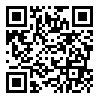Volume 5, Issue 4 (January 2025)
2025, 5(4): 172-183 |
Back to browse issues page
Ethics code: IR.PNU.REC.1402.203
Download citation:
BibTeX | RIS | EndNote | Medlars | ProCite | Reference Manager | RefWorks
Send citation to:



BibTeX | RIS | EndNote | Medlars | ProCite | Reference Manager | RefWorks
Send citation to:
Khaleghi N, Rahmanian M. (2025). Effect of Philosophy Program for Children on Happiness, Quality of Life, and Mental Health on Children. Journal of Childhood Health and Education. 5(4), 172-183. doi:10.32592/jeche.5.4.172
URL: http://jeche.ir/article-1-271-en.html
URL: http://jeche.ir/article-1-271-en.html
1- M.A Student in Psychology, Department of Psychology, Payam Noor University, Tehran, Iran
2- Associate Professor, Department of Psychology, Payam Noor University, Tehran, Iran
2- Associate Professor, Department of Psychology, Payam Noor University, Tehran, Iran
Abstract: (978 Views)
Background and Aim: With the aim of developing mental abilities and improving the cognitive level of children, the Fabak program seeks to increase their social, moral, and cognitive abilities through their active participation in philosophical discussions and interactive learning. The present study aimed to assess the effect of the P4C (Philosophy for Children) program on the happiness, quality of life, and mental health of children aged 9-12 in Tehran.
Methods: Accordingly, 30 individuals were selected as a sample and randomly assigned to two experimental and control groups (15 in each group). Both control and experimental groups completed the 29-itemn Oxford Happiness Questionnaire (1989), the Quality-of-Life Questionnaire for 8-12-year-old children (2003), and the Mental Health Assessment Questionnaire for Children and Adolescents (1984). Consequently, the experimental group students were trained for 10 sessions of 60 minutes with P4C exercises for 10 weeks. In addition, the control group remained in waiting mode. Following the end of the sessions and two months later, the mentioned tests were performed for both experimental and control groups. Data were analyzed in SPSS software (version 24) using analysis of covariance.
Results: The results indicated that the impact of the P4C program on happiness, quality of life, and mental health among children aged 9- 12 years in Tehran was significant.
Discussions: It can be concluded that the P4C program can be used as an effective tool to promote happiness, quality of life, and mental health among children aged 9-12 years. This positive impact can be attributed to the educational methods of P4C, including encouragement of critical thinking and participation in philosophical discussions.
Methods: Accordingly, 30 individuals were selected as a sample and randomly assigned to two experimental and control groups (15 in each group). Both control and experimental groups completed the 29-itemn Oxford Happiness Questionnaire (1989), the Quality-of-Life Questionnaire for 8-12-year-old children (2003), and the Mental Health Assessment Questionnaire for Children and Adolescents (1984). Consequently, the experimental group students were trained for 10 sessions of 60 minutes with P4C exercises for 10 weeks. In addition, the control group remained in waiting mode. Following the end of the sessions and two months later, the mentioned tests were performed for both experimental and control groups. Data were analyzed in SPSS software (version 24) using analysis of covariance.
Results: The results indicated that the impact of the P4C program on happiness, quality of life, and mental health among children aged 9- 12 years in Tehran was significant.
Discussions: It can be concluded that the P4C program can be used as an effective tool to promote happiness, quality of life, and mental health among children aged 9-12 years. This positive impact can be attributed to the educational methods of P4C, including encouragement of critical thinking and participation in philosophical discussions.
Type of Study: Research |
Subject:
Special
Received: 2024/10/5 | Accepted: 2024/11/30 | Published: 2025/02/28
Received: 2024/10/5 | Accepted: 2024/11/30 | Published: 2025/02/28
Extended Abstract [HTM 31 KB] (41 Download)
Send email to the article author
| Rights and permissions | |
 |
This work is licensed under a Creative Commons Attribution-NonCommercial 4.0 International License. |





